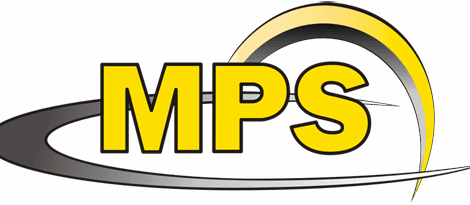From today November 30, the World Trade Organisation (WTO) was scheduled to hold its 12th ministerial meeting for four days in Geneva to discuss a number of crucial issues for the developing countries including some waiver in respect of Trade Relates Aspects of Intellectual Property Rights (TRIPS). This relates to patents and in the context of the current pandemic, the dilution of the current patent laws is of prime importance to the poorer and the developing countries.
Unfortunately, the ministerial meeting has been postponed indefinitely due to the latest threat from the new virus Omicron leading to the disruption once again of the international flights. At a time when the issue is of prime importance for the survival of the people in the poor countries, the meeting is getting further delayed and the top pharma companies of the USA and Europe are getting more time to make superprofits from the vaccines for covid and other needed medical equipment.
I had the good fortune to cover the WTO ministerial meeting at Seattle from November 30 to December 3 and distinctly remember how the rich countries tried to steamroll the developing countries including India to agree to market access as proposed by them, new norms for labour standards and agreeing to removal of agricultural subsidies by the developing countries like India. The meet despite the address by President Bill Clinton, the then US President, collapsed following the big battle between the US and the European Union over the formula on subsidies while the other member nations got marginalized during discussions though they were more in number.
But as a professional, I had a most exciting period during the meet as I was witness to the birth of the anti-globalization movement at Seattle on the first day when more than 40,000 demonstrators barricaded the roads around the Convention Hall and forced the WTO leadership to postpone the inauguration. United States was the host and it was a big loss of prestige of the US administration as their President was to address on the next day. The US security agencies were on full alert but they could not expect the massive character of the protests on the first day.
Comprising a broad and diffuse coalition of the American Federation of Labor–Congress of Industrial Organizations (AFL-CIO) and other labour unions, student groups, nongovernmental organizations (NGOs), media activists, international farm and industrial workers, anarchists, and others, the Seattle WTO protests werethen viewed as the beginning of the anti-globalization movement. The Seattle WTO protests were some of the first major international mobilizations to be coordinated via the Internet.
The protests were reported online with streaming audio and video clips by the Seattle Independent Media Center. While 400,000 people took part in a virtual sit-in of the WTO Web site organized by the Electrohippies Collective, more than 40,000 protesters (some estimates were as high as 60,000) were in Seattle to oppose everything from specific WTO policies to free trade and the human rights failures of globalization. Throughout the week, NGOs also sponsored debates, lectures, and teach-ins.
Seattle is known for sudden rains and the WTO reception committee gave media persons an umbrella with WTO logo. I had also my media badge given by WTO. As I sat with the demonstrators mostly young, I remembered my younger days as an activist in Calcutta when in 1960’s I participated in demonstrations along with my comrades and gave slogans just like these young American students were giving. Not only Americans, there were young contingents from Portugal, Spain, Britain and France, apart from the countries of Latin America.
There was music all round and it reminded me of the annual festival of the Indian People’s Theatre Association (IPATA) in Kolkata in 1950s. At one side was a Portugese band singing songs in chorus, next to that Peruvian students singing international and songs of Peete Seeger on Vietnam. I met two Indian students including one Bengali of Washington University, as a part of the music group. It was fun frolic and comraderie all through. Some artistes and painters were busy in doing posters against the WTO and the US government policies at the venue itself.
In response to this massive turnout of demonstrations, the police used pepper spray, tear gas, and rubber bullets in their efforts to disperse the crowd; some protesters responded in kind by throwing sticks and water bottles. At the same time, the permitted AFL-CIO People’s Rally and March of more than 25,000 activists began at Memorial Stadium. There was total chaos and the Mayor of Seattle ordered curfew from 7 PM to 7 AM next day as President Bill Clinton was arriving. The Seattle Police was not adequate, they were joined by Washington National Guard and US military..All four days, the demonstrations were the topic of discussion among the WTO delegates at the Convention Centre. US trade representative herself announced the end of the meeting without any declaration.
Exactly, 22 years after today, there is little basic change in the attitude of the rich nations towards the trade issues. In 1999, China was not a member but in 2000, it got membership and China on its own, has been able to get concessions by using its growing economic clout. India has not been fortunate that way. At the WTO meeting scheduled from today, WTO was supposed to decide on a conditional temporary waiver of TRIPS proposed by India and South Africa in October 2020.Two thirds of the 164 WTO members support this. But the western governments- UK, Germany, Switzerland as also USA are opposing the Indian and South African resolution so that there is little dilution of the existing patent laws. They are not interested in taking account the looming threat from Omicron. They are interested in protecting the interests of their pharma majors. Twenty two years have passed since the Seattle conference, but the same tradition continues. (IPA Service)


 Omicron: After-Effect May Be More Virulent Than Infection
Omicron: After-Effect May Be More Virulent Than Infection 